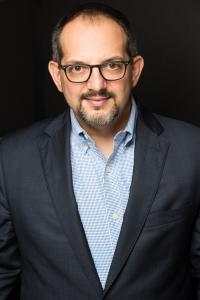Many of my friends, from their teens to their fifties, are still wrestling with the question: “What do I want to be when I grow up.” There are a host of reasons for our collective angst about what type of work we should pursue.
- Alternatives: we are bombarded with teasers about different careers and approaches to work. Facebook, Indeed, and the Muse all feed FOMO (fear of missing out) when it comes to our careers.
- Disruption: technological and global economic forces speed up the cycle of change in markets and industries creating more churn: we change jobs and lose our jobs more often than a generation ago.
- The Ache: as relational roots, social clubs, and faith communities have declined, we are looking for more out of our work: meaning, connection, and belonging. So, we are more apt to jump.
In my last post, I suggested that we will find a surprising degree of freedom if we replace the word “want” with “supposed.” “What are you supposed to be when you grow up? Over “What do you want to be when you grow up?”
The Answer
The answer to the “supposed to be” question has two parts:
- What are my gifts, talents, and abilities? Our “supposed to be” flows from our competencies, not our wishes.
The second portion of the answer speaks to the point of our work.
- How can I use my gifts for the maximum benefit of my neighbor?
In Lee Hardy’s great book, The Fabric of This World, he quotes 16th Century thinker John Calvin
“Those who belong to the household of faith should choose those employments that yield the greatest advantage to their neighbors.”
He goes on to say “Christians are obliged to evaluate a job by its actual social content—the way in which it benefits or harms others.” (p. 98)
We have moved from “What do you want to be when you grow up?” to “What are my greatest talents and gifts and how can they be used to bring real benefit to others?”
Easy or Better?
I’m not saying this easy.
I am saying this is a better way to wrestle with your calling and career direction.
- It is better because it lifts you out of the numbing gravitational pull of narcissism. You work is not about your fulfillment, it is about the benefit you were designed to bring to others. (Bringing benefit to others just happens to be deeply fulfilling!)
- It is better because it hooks our work into Jesus who told us to love our neighbor. This is his desire for us and he will empower us to do it.
- It provides a powerful clue to career navigation. We start to ask, “where am I needed?” “Where is a person with my gifts and talents and skills valued and utilized?” Our search for better work is now grounded in external reality not wishful thinking.
What would you gain by asking “How can I use my gifts for the maximum benefit of my neighbor?” instead of “What do I want to be when I grow up?”
 Dr. Chip Roper writes Marketplace Faith from New York City, where he is the Founder and President of the VOCA Center. Chip is passionate about making work better by empowering clients with a keen sense of vocational identity. In service of this vision, Dr. Roper provides coaching, training, and consulting to individuals and organizations in NYC and beyond. Download information about his work as an executive coach and VOCA’s Calling Discernment Program visit our faith-based website at vocacenter.org and our market-facing menu of services at www.vocacenter.com.
Dr. Chip Roper writes Marketplace Faith from New York City, where he is the Founder and President of the VOCA Center. Chip is passionate about making work better by empowering clients with a keen sense of vocational identity. In service of this vision, Dr. Roper provides coaching, training, and consulting to individuals and organizations in NYC and beyond. Download information about his work as an executive coach and VOCA’s Calling Discernment Program visit our faith-based website at vocacenter.org and our market-facing menu of services at www.vocacenter.com.












